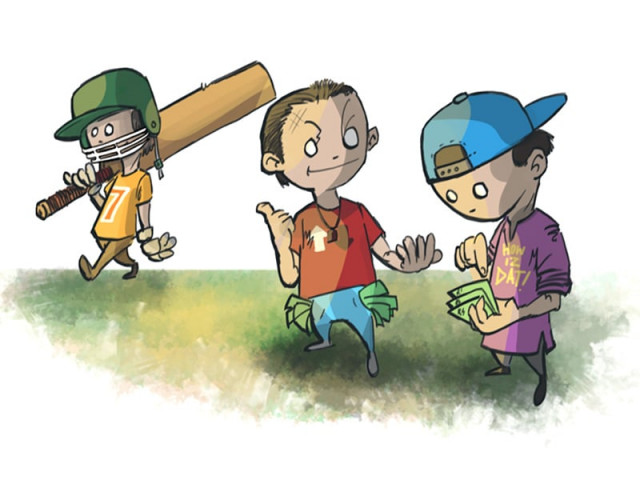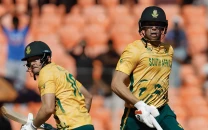All nations fixed matches, not just Pakistan: Condon
Founding head of the ICC's anti-corruption unit says Test and World Cup matches were routinely fixed in the late-90s.

All nations fixed matches, not just Pakistan: Condon
"In the late 1990s, Test and World Cup matches were being routinely fixed," Paul Condon, the founding head of the International Cricket Council's anti-corruption unit, said in an interview with London Evening Standard.
"There were a number of teams involved in fixing, and certainly more than the Indian sub-continent teams were involved.
"Every international team, at some stage, had someone doing some funny stuff."
This month a British court jailed three Pakistan cricketers for deliberately bowling no-balls in a Test against England at Lord's last year in order to affect an illegal betting coup.
Former Pakistan captain Salman Butt was sentenced to 30 months in prison while bowlers Mohammad Asif and Mohammad Amir were jailed for a year and six months respectively.
But Condon, a former head of London's Metropolitan Police Force who helped set up the ICC's anti-corruption and security unit (ACSU) in 2000 and chaired it for a decade, said: "A whole generation of cricketers playing in the late 1990s must have known what was going on and did nothing."
And Condon added the root of the problem lay not in Asia but in English county cricket, where favours were traded between teams across the domestic 40-over Sunday league and first-class Championship competitions.
"If you're Team A and have a higher position in the Sunday league and I'm captain of Team B and my team have no chance in the Sunday league, I might do a deal to ensure you got maximum points in your Sunday league match.
"You would reciprocate in the County Championship. These friendly fixes quickly became more sinister, probably in the Eighties."
Despite widespread speculation about the probity of several fixtures, cricket chiefs only took action in 2000 when South Africa captain Hansie Cronje was revealed to have accepted bribes from bookmakers.
Condon was brought on board by the ICC, with the initial aim of making sure matches in the 2003 World Cup in southern Africa were 'clean'.
Although confident those games were above board, and that the rigging of matches is no longer a major concern, the 64-year-old believes the tournament marked the emergence of 'spot-fixing' when unscrupulous gamblers realised they could pull off huge betting coups merely on specific incidents.
Yet it was not the ACSU, now headed by another former British police officer in Ronnie Flanagan, who carried out the 'sting' operation that caught the Pakistan trio but now defunct UK tabloid newspaper the News of the World.
"We considered it and a policy decision was taken that, firstly, it would be highly unlikely the police would prosecute," Condon said. "They would say, 'This is entrapment'."
Condon, who helped persuade the British Government to make cheating in sport a criminal offence in the 2005 Gambling Act, had some sympathy for Amir, saying he was "unsophisticated".
"But that's not to say he doesn't deserve a symbolic punishment. To keep cricket clean sentences have to be exemplary."
And he added he knew of cases where Pakistan players risked intimidation by assisting in ACSU inquiries.
"We had this Pakistani cricketer who was genuinely frightened that if he had revealed what he knew, there would be repercussions on his family. He was a very valuable informant. We flew him from Pakistan at the ICC's expense and put him up in safe accommodation in London for about a week while we debriefed him."
Condon urged present-day players to do more in the fight against corruption, saying: "In recent years, there's been very little whistle-blowing from current players."



















COMMENTS
Comments are moderated and generally will be posted if they are on-topic and not abusive.
For more information, please see our Comments FAQ